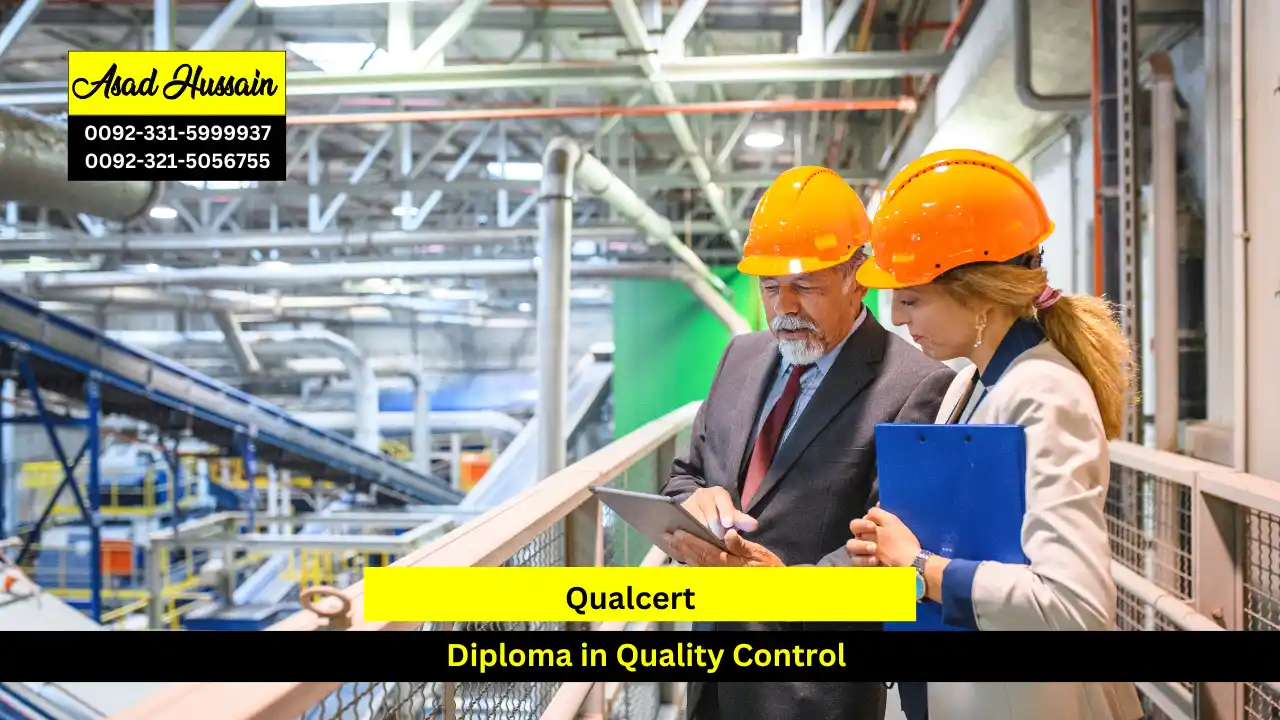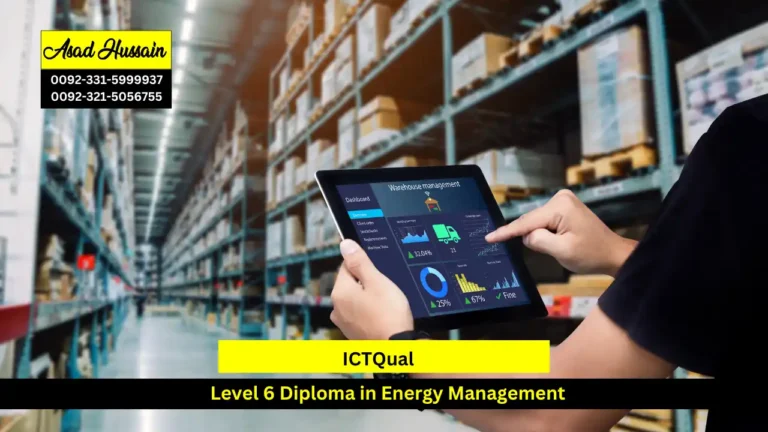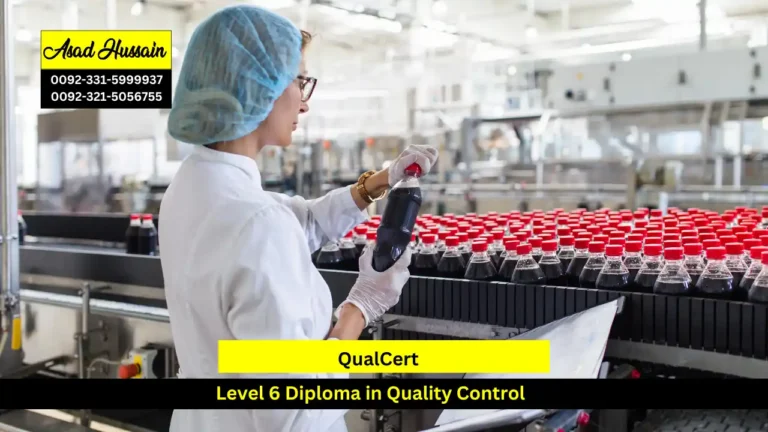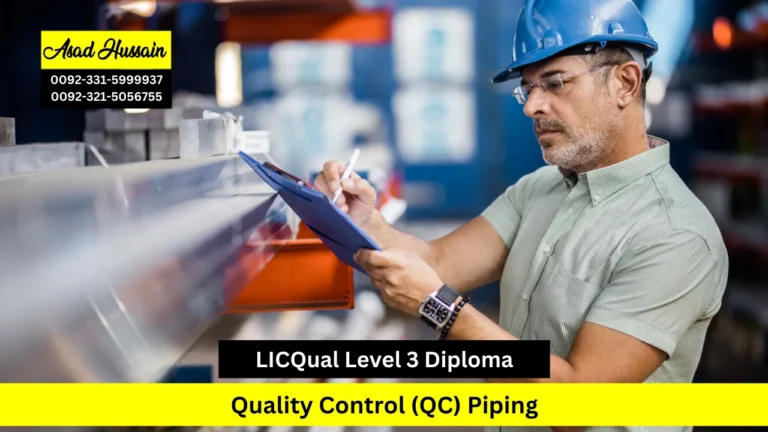In today’s fast-paced and competitive business environment, ensuring quality is paramount. Companies across various industries are prioritizing quality control to meet customer expectations and maintain regulatory standards. If you’re looking to advance your career in quality management, the Level 5 Diploma in Quality Control offers a comprehensive path to achieve this goal. This advanced qualification is designed to equip professionals with the knowledge and skills required to excel in quality control roles. Here’s why pursuing this diploma could be a game-changer for your career.
The Level 5 Diploma in Quality Control is a specialized qualification that provides a deep understanding of quality management principles and practices. Aimed at professionals who already have some experience in the field, this diploma covers advanced quality control concepts and strategies. It’s an ideal choice for those looking to transition into senior quality roles or enhance their expertise in quality management.
Opting for the Level 5 Diploma in Quality Control is a strategic move for professionals aiming to deepen their knowledge and advance their careers. The qualification is designed to provide practical, industry-relevant skills that can be directly applied in the workplace. It is recognized by employers and can significantly enhance your professional credibility.
The Level 5 Diploma in Quality Control offers a robust pathway to mastering advanced quality management techniques and strategies. If you’re ready to take your career in quality control to the next level, this diploma is a valuable investment in your professional growth. With its comprehensive curriculum and focus on practical skills, you’ll be well-equipped to tackle complex quality challenges and lead teams towards excellence.
Program Highlights
Mandatory Units
- 1. Experienced Quality Control Professionals
- 2. Mid-Level Managers and Supervisors
- 3. Industry Professionals8. Career Switchers
- 4. Entrepreneurs and Business Owners
- 5. Regulatory and Compliance Personnel
- 6. Continuous Improvement Enthusiasts
- 7. Academic and Training Institutions
- 8. Career Switchers
Educational Qualifications
- Completion of a Level 4 Diploma in Quality Control or Equivalent: Applicants should have successfully completed a Level 4 Diploma in Quality Control or an equivalent qualification in a related field.
Work Experience
- Relevant Work Experience: Applicants should have at least 2-3 years of work experience in quality control, quality assurance, or a related field. This experience should demonstrate a solid understanding of quality control principles and practices.
Prerequisite Knowledge
- Strong Foundation in Quality Control and Statistical Methods: Applicants should possess a strong foundation in quality control methodologies and basic statistical techniques, as these are essential for the advanced topics covered in the Level 5 Diploma.
Language Proficiency
- Proficiency in English: Since the course is conducted in English, applicants must demonstrate proficiency in the language.
1. Experienced Quality Control Professionals
- Advanced Techniques and Strategies: Develop and apply advanced quality control techniques to complex quality issues, enhancing problem-solving capabilities.
- Leadership in Quality Control: Demonstrate leadership and strategic thinking in managing quality control teams and projects, fostering a culture of excellence.
- Innovative Solutions: Utilize innovative approaches and technologies to address emerging quality challenges and improve overall quality management practices.
2. Mid-Level Managers and Supervisors
- Quality Management Systems Implementation: Implement and oversee quality management systems effectively within their departments or teams.
- Team Management and Development: Enhance skills in managing and developing quality control teams, including performance monitoring and training.
- Operational Efficiency: Apply quality control principles to optimize operational processes and drive continuous improvement within their units.
3. Industry Professionals
- Industry-Specific Quality Standards: Understand and apply industry-specific quality standards and regulations to ensure compliance and excellence.
- Risk Management: Develop strategies for identifying, assessing, and mitigating risks within industry-specific quality control contexts.
- Stakeholder Communication: Improve communication and collaboration with stakeholders to address quality issues and implement effective solutions.
4. Entrepreneurs and Business Owners
- Quality Control Integration: Integrate quality control processes into business operations to enhance product/service quality and customer satisfaction.
- Cost-Benefit Analysis: Conduct cost-benefit analyses to evaluate the impact of quality control measures on business performance and profitability.
- Quality-Driven Business Strategy: Develop and implement business strategies that leverage quality control principles to gain a competitive edge and drive growth.
5. Regulatory and Compliance Personnel
- Regulatory Compliance: Ensure adherence to regulatory and compliance requirements related to quality control, including industry-specific standards and legislation.
- Audit and Inspection Skills: Conduct effective audits and inspections to assess compliance and identify areas for improvement.
- Documentation and Reporting: Master the documentation and reporting processes required for regulatory compliance and quality control.
6. Continuous Improvement Enthusiasts
- Continuous Improvement Methodologies: Apply continuous improvement methodologies such as Lean, Six Sigma, and Kaizen to enhance quality and operational efficiency.
- Change Management: Develop skills in managing and leading change initiatives related to quality improvement.
- Performance Measurement: Implement performance measurement systems to track progress and achieve continuous improvement goals.
7. Academic and Training Institutions
- Curriculum Development: Design and develop curricula for quality control training programs, incorporating advanced concepts and industry best practices.
- Educational Strategies: Employ effective teaching strategies and assessment methods to educate future quality control professionals.
- Industry Collaboration: Foster partnerships with industry stakeholders to ensure that educational programs align with current quality control trends and demands.
8. Career Switchers
- Fundamental Quality Control Skills: Acquire foundational quality control skills and knowledge necessary for transitioning into quality control roles from other fields.
- Industry Overview: Gain an understanding of the quality control industry, including key concepts, terminology, and practices.
- Job Market Readiness: Prepare for entry into the quality control job market by developing resume-building skills, interview techniques, and networking strategies.
The Level 5 Diploma in Quality Control is tailored for a diverse audience seeking to advance their expertise and career prospects in quality management. It is ideal for experienced quality control professionals aiming to deepen their knowledge and take on leadership roles, as well as mid-level managers and supervisors looking to enhance their skills in managing quality control teams and improving operational processes. Industry professionals can benefit from understanding specific quality standards and risk management practices relevant to their field, while entrepreneurs and business owners can integrate robust quality control practices into their operations to drive business growth. Additionally, regulatory and compliance personnel will gain expertise in ensuring adherence to industry regulations, continuous improvement enthusiasts can explore advanced methodologies for optimizing performance, and academic and training institutions will find value in developing effective quality control curricula. For career switchers, this course provides the foundational skills and industry insights necessary to make a successful transition into quality control roles.







